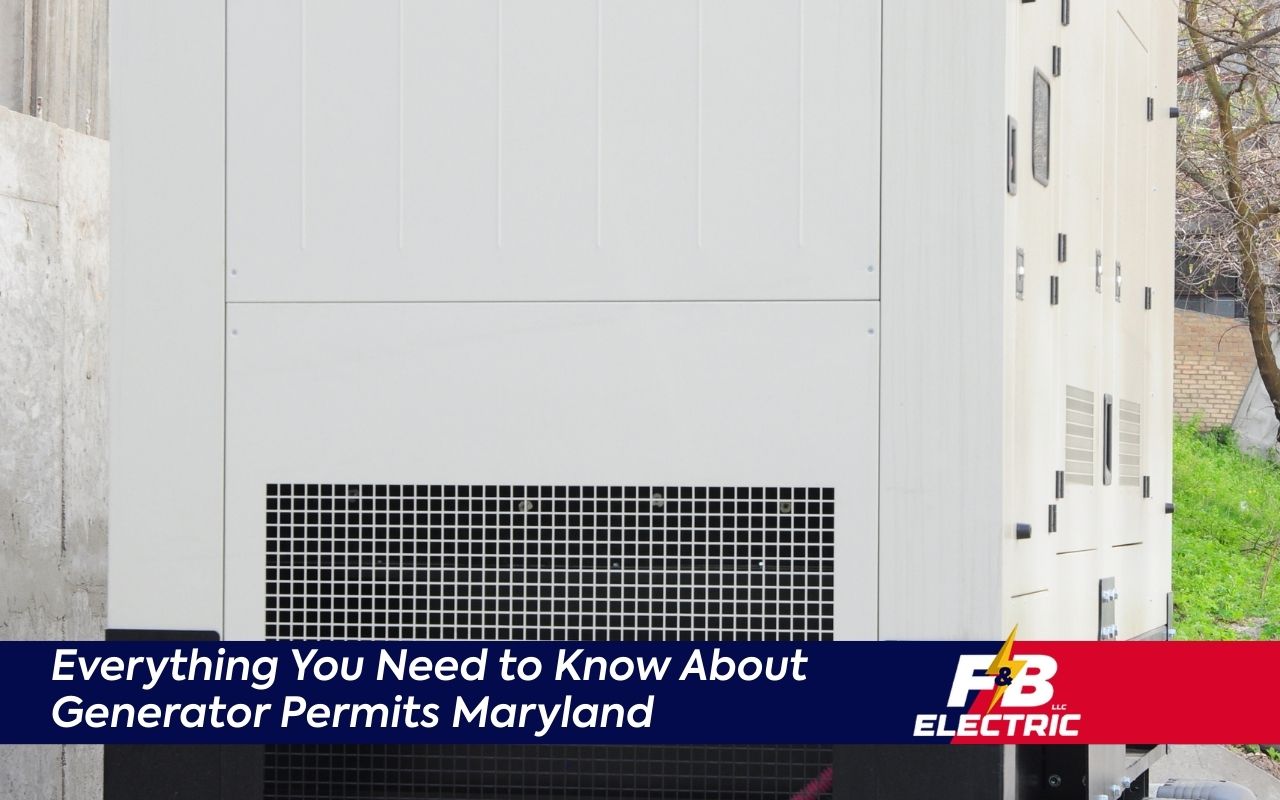
When storm clouds gather and power lines fail, a reliable generator can keep your home running. However, before powering up, you must understand generator permits Maryland.
Navigating permits and regulations can be daunting, but knowing these requirements ensures a smooth installation and peace of mind. Whether you’re new to Maryland or a seasoned homeowner, learning about local permitting laws saves time, money, and stress.
In Maryland, installing a generator isn’t as simple as buying a unit. Local regulations require specific permits and inspections to ensure safety. These permits are more than bureaucracy—they protect residents and utility workers alike.
In this guide, we explain everything about obtaining generator permits Maryland, helping you achieve a reliable power backup system stress-free.
Understanding the Importance of Generator Permits in Maryland
Investing in a generator for your home means understanding why generator permits Maryland are crucial. They guarantee safe operation of your backup system.
Maryland building departments enforce electrical, structural, and fire safety codes. Getting the right permits ensures your generator meets these standards. It also protects against hazards like carbon monoxide leaks, faulty wiring, or poor ventilation.
Beyond safety, a generator permit in Maryland prevents costly delays or fines. Unpermitted installations may require stopping work, removing equipment, or paying penalties. Moreover, lenders and insurers often require proof of permitted work when selling a home.
By following local regulations, you streamline inspections, avoid legal issues, and maintain your property’s resale value. Generator permits Maryland are an investment in safety and long-term peace of mind.
Types of Generator Permits Required in Maryland
Several permits may be required depending on your generator setup:
- Building Permit: Required for structural work such as pad installation, anchoring, and clearance compliance.
- Electrical Permit: Needed for all wiring, transfer switches, and connections to the main panel, ensuring safe installation by licensed professionals.
- Fuel Storage Permit: For generators using diesel, natural gas, or propane. Required by the Maryland Fire Marshal’s Office for safe tank placement and environmental compliance.
Applying for generator permits Maryland can feel overwhelming, but breaking it into steps helps. First, gather site plans, electrical load calculations, fuel schematics, and equipment specifications.
Many county offices accept online submissions, making document uploads and application tracking easier. Accuracy is key; errors delay approvals.
After submission, the office reviews compliance with building codes, electrical standards, and environmental regulations. Review times vary from days to weeks.
Respond promptly to requests for more information. Once approved, display your permit and schedule inspections according to local guidelines. Staying organized ensures your installation remains on track.
Hiring Licensed Professionals for Permit Compliance
Generator permits Maryland aren’t just paperwork—they ensure safe, professional work. Only licensed electricians can connect generators, install transfer switches, and handle fuel lines.
Hiring a reputable company accelerates approval and reduces risks. Verify licenses through Maryland’s Department of Labor and confirm insurance coverage, including workers’ compensation and liability. Request references and past project examples.
Experienced professionals handle permit submissions, schedule inspections, and coordinate with officials, ensuring a compliant, safe, and reliable installation. For expert assistance, consider contacting a residential electrician in Columbia, MD.
Preparing for Generator Inspections in Maryland
Inspections are vital for generator permits Maryland. Inspectors check footing, wiring, transfer switches, and final operation. Proper preparation prevents setbacks.
Review approved plans, verify conduit and cable placement, and ensure clear access for inspections. Address discrepancies before the inspector arrives. A pre-inspection walk-through with your electrician helps secure final approval.
Ensuring Safety Measures in Generator Installation
Safety is paramount, and generator permits Maryland require protective measures. Generators emit carbon monoxide, so ventilation is crucial. Install units away from doors and windows, ensuring a clear exhaust path.
Grounding and bonding prevent shocks, while weatherproof enclosures protect components. Fuel safety measures like secondary containment reduce environmental risks. Following these protocols keeps your home, family, and property safe.
FAQs
What is a generator permit in Maryland?
A generator permit in Maryland is official approval ensuring your backup generator meets safety, electrical, and structural codes.
Do I need a licensed professional for installation?
Yes. Only licensed electricians can legally perform connections and comply with generator permits Maryland regulations.
How long does the permit process take?
Processing times vary by county and complexity. Expect anywhere from a few days to several weeks for approval.
Can I install a generator without a permit?
No. Installing without proper permits may result in fines, removal orders, or insurance issues.
Where can I get help with permit applications?
You can hire licensed electricians or contact local building departments. For professional support, visit F & B Electric LLC Electrical Services in Columbia, MD.
Securing Your Power Supply with Proper Generator Permits
Generator permits Maryland are key to a reliable backup system. Following local regulations ensures compliance and prevents hazards.
By securing all permits and hiring professionals, your home will withstand outages with an inspected and reliable generator. Proper planning and adherence to codes allow you to face storms confidently.
Make generator permits Maryland a priority. For expert guidance or to schedule your installation, contact F & B Electric LLC today.
